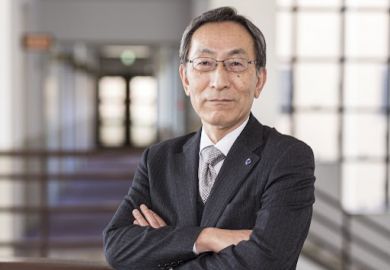A new generation of university leaders will need communication, technological and social skills to make it in the post-Covid era, the Times Higher Education Leadership & Management Summit heard.
Eden Woon, president of the Asian Institute of Technology (AIT) in Thailand and a veteran business executive, said that “being a university president is more difficult than being a CEO – and I know, because I’ve been a CEO”.
While the focus was currently on Covid-19 control, “all the normal complications still exist: resources, faculty, strategy. Only now it’s doubly, triply difficult,” he said.
AIT faced a unique challenge, as Thailand was the first country outside of China to record a Covid-19 case, on 13 January. Campuses were closed for months and in-bound commercial flights are still blocked.
This made life particularly difficult for AIT, a private, postgraduate-only institution where 70 per cent of students come from overseas and almost all normally live on campus.
In response, AIT opened its own quarantine site with Thammasat University Hospital as a partner and made flight arrangements for some students.
It also set up HyFlex classrooms, which allowed for simultaneous in-person and online teaching and extracurricular activities, so that Thai and foreign students could forge a sense of community, despite being physically apart.
“We worked very hard all spring and summer, with the motto ‘without losing a beat’,” Dr Woon said.
He said that leaders today needed to understand technology and be able to offer “thorough, transparent and frequent communication” to their communities.
“Not all university presidents are tech savvy, but nowadays, it comes into every part of the job,” he said.
Kenneth Matengu is the youngest vice-chancellor to head the University of Namibia, which began creating an online learning platform a few years ago. Those efforts paid off when the African nation’s campuses closed and all face-to-face classes were moved to Moodle.
When campuses reopened in June, the institution strategically let only some students back – for example, those who suffered from “digital poverty” and did not have internet access, or those who needed to conduct lab or clinical work. The goal was to balance public health needs with equal access to education.
A modern university leader needs to be “more than just a top academic and an administrator”, Professor Matengu said. They also need to be trusted, show compassion and excel at outreach. “I had staff calling me directly, telling me their problems, and that’s probably not something a v-c would conventionally do,” he said.
As the country’s largest public higher education institution, the University of Namibia also felt a duty to contribute to the nation’s development during a crisis – for example, by helping with Covid testing.
Professor Matengu said he hoped to pass those leadership qualities to students. The “graduate attributes” they wish to impart are “ethics, leadership, flexibility and environmental awareness – not just an attainment of knowledge”.
Dr Woon said that the conventional path to higher education leadership – of becoming a professor, a department head, a dean, then a senior administrator – was still valid, but not the only route.
“If you’re interested in becoming a leader, you need management and communication skills, as well as understanding of geopolitics and social issues like the environment,” he said. “It’s important that your academic qualifications are excellent, but that’s not enough.”




